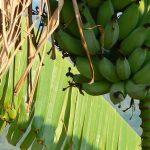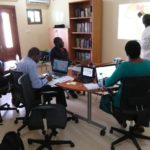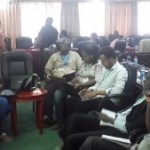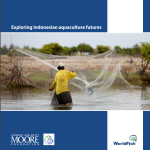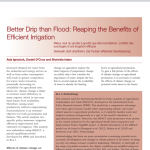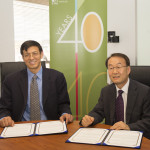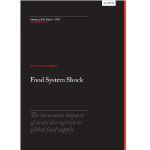By Bioversity International/RTB — Bananas and plantains (Musa spp.) provide a major source of food and income for over 30 million people in Eastern and Central Africa (ECA). Uganda produces an estimated 10 million tonnes annually valued at about US$550 million. Most ECA bananas are domestically consumed with the highest global per capita consumption of >> Read more
Exploring the impact of alternative investments on poverty, hunger, and the environment
By Tim Sulser — The Global Futures and Strategic Foresight program recently released results of a study using quantitative foresight modeling to explore the impacts of alternative investments in agricultural research, resource management, and infrastructure on the CGIAR’s System Level Outcomes relating to poverty (SLO1), food and nutrition security (SLO2), and natural resources and ecosystem >> Read more
Training workshop for the National Agricultural Investment Plans appraisal and design process for Sub-Saharan Africa: Introduction to Foresight Analysis
By Tim Sulser (IFPRI) With several members of AGRODEP and governmental/university researchers from Nigeria, Uganda, and the Ivory Coast, in September 2016 I led a successful training workshop focused on using strategic foresight analyses to inform the review and development process of country-level National Agricultural Investment Plans (NAIPs). We first worked to develop a common understanding >> Read more
Building capacity and a forum for collaboration
International Maize and Wheat Improvement Center (CIMMYT) organized a five-day training workshop titled “Crop and Bioeconomic Modeling under Uncertain Climate” on 7-11 December 2015 in Addis Ababa, Ethiopia. The workshop brought together representatives of Association for Strengthening Agricultural Research in Eastern and Central Africa (ASARECA) and West and Central Africa Council for Agricultural Research and Development (CORAF), as well as researchers from agricultural research institutes and universities from Ethiopia, Kenya, Uganda, Niger, Senegal, Nigeria, and Democratic Republic of the Congo.
IFPRI and partners share insights on climate change and food security in Paris
“Up and down the scales of time and place: Integrating global trends and local decisions to make the world more food-secure by 2050” at Global Landscapes Forum, December 5 2015.
Exploring Indonesian aquaculture futures: new report from WorldFish
By Nhuong Tran (WorldFish), Evgeniya Anisimova (PIM) Aquaculture is the fastest-growing food production sector globally, with production projected to double within the next 15–20 years. Future growth of aquaculture is essential to providing sustainable supplies of fish in national, regional and global fish food systems; creating jobs; and maintaining fish at affordable levels for resource-poor consumers. To ensure >> Read more
IAAE symposium explores linkages between global and regional economic models
By Sika Gbegbelegbe (IITA) The triennial conference of the International Association of Agricultural Economists (IAAE) provides a platform for the Global Futures and Strategic Foresight (GFSF) teams of the CGIAR centers to showcase their work. The first symposium organized by these teams was on ‘Bio-economic modeling to assess options for enhancing food security under climate >> Read more
On-going OECD collaboration releases results in EuroChoices
In ongoing work with the Organisation for Economic Co-operation and Development (OECD), IFPRI released a new publication in EuroChoices on August 16th aimed at reaching European policy makers.
IFPRI and KREI plan collaborative research on climate change and food security
The International Food Policy Research Institute (IFPRI) and the Korea Rural Economics Institute (KREI) recently signed a Memorandum of Understanding to support collaboration between the two institutions.
Lloyd’s study on “Food System Shock: The Insurance Impacts of Acute Disruption to Global Food Supply” draws on GFSF research
By Daniel Mason-D'Croz (IFPRI) The insurance group Lloyd’s recently commissioned the study “Food System Shock: The Insurance Impacts of Acute Disruption to Global Food Supply” to explore some of the potential risks of a series of extreme events on the global food system and the implications this might have on food security and the insurance industry. >> Read more
